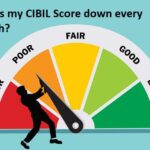1. Financial Hardship: If you’re facing a sudden and significant loss of income, such as a job loss, medical emergency, or unexpected expense, and you’re unable to keep up with your credit card payments, settlement might be an option to consider.
2. High Levels of Debt: If you have accumulated a high amount of credit card debt that you’re struggling to repay, and it’s causing significant financial stress or impacting your ability to meet other financial obligations, the settlement could be a solution to reduce your debt burden.
3. Risk of Bankruptcy: If you’re at risk of bankruptcy due to overwhelming credit card debt and other financial liabilities, settlement might be a way to avoid or mitigate the consequences of bankruptcy.
4. Legal Action by Creditors: If your creditors are threatening legal action, such as lawsuits , settlement could help you avoid or resolve these legal proceedings.
5. Negative Equity: If the value of your assets, such as your home or vehicle, is less than the amount of debt secured against them, and you’re unable to afford the payments, settlement might be a way to address the negative equity and reduce your debt burden.
6. Persistent Collection Calls: If you’re receiving persistent collection calls and letters from creditors or debt collectors, and you’re unable to negotiate a manageable repayment plan, settlement could be a way to resolve the debt and stop the collection efforts.
It’s important to note that credit card settlement should not be taken lightly and should only be pursued after careful consideration of the potential consequences. It can have a negative impact on your credit score. Before pursuing credit card settlement, it’s advisable to consult with a financial advisor or credit counsellor to explore all of your options and determine the best course of action for your individual circumstances.



